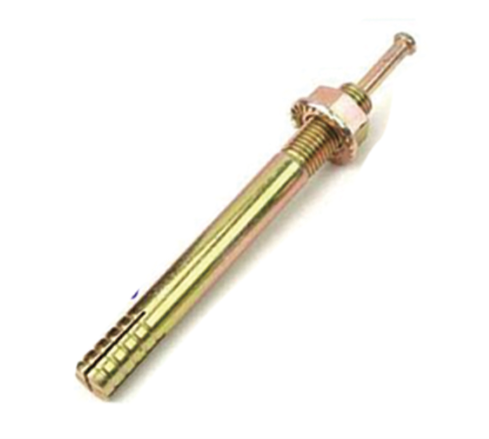Why Quality Stainless Steel Chemical Anchor Bolts Are Essential for Industrial Projects
Why Quality Stainless Steel Chemical Anchor Bolts Are Essential for Industrial Projects
Table of Contents
Introduction to Stainless Steel Chemical Anchor Bolts
The Importance of Quality in Anchor Bolts
What Are Chemical Anchor Bolts?
Advantages of Using Stainless Steel
Common Applications in Industrial Projects
Factors to Consider When Selecting Chemical Anchor Bolts
I
Jun 09,2025

Why Quality Stainless Steel Chemical Anchor Bolts Are Essential for Industrial Projects
Table of Contents
- Introduction to Stainless Steel Chemical Anchor Bolts
- The Importance of Quality in Anchor Bolts
- What Are Chemical Anchor Bolts?
- Advantages of Using Stainless Steel
- Common Applications in Industrial Projects
- Factors to Consider When Selecting Chemical Anchor Bolts
- Installation Best Practices for Chemical Anchor Bolts
- Maintenance and Inspection of Chemical Anchor Bolts
- Conclusion
- Frequently Asked Questions
Introduction to Stainless Steel Chemical Anchor Bolts
In the realm of industrial construction, the significance of selecting the **right fasteners** cannot be overstated. Among these fasteners, **stainless steel chemical anchor bolts** stand out due to their durability, strength, and versatility. These specialized bolts are engineered to withstand harsh environmental conditions, chemical exposure, and significant loads, making them indispensable in various industrial applications.
The Importance of Quality in Anchor Bolts
When it comes to anchor bolts, **quality is paramount**. Poor-quality bolts can lead to catastrophic failures, compromising safety and resulting in costly project delays. High-quality stainless steel chemical anchor bolts provide:
- **Enhanced Strength and Durability**: They resist corrosion and wear over time, ensuring long-lasting performance.
- **Safety and Reliability**: Using quality materials minimizes the risk of structural failures, safeguarding workers and equipment.
- **Cost-Effectiveness**: Although high-quality bolts may have a higher upfront cost, their longevity and reliability significantly reduce long-term maintenance and replacement expenses.
Investing in premium anchor bolts means prioritizing safety and operational efficiency in industrial projects.
What Are Chemical Anchor Bolts?
Chemical anchor bolts are a type of fastener designed to secure materials to concrete or masonry using a **chemical adhesive**. This method creates a bond that not only holds the bolt in place but also enhances its load-bearing capabilities.
How Do Chemical Anchor Bolts Work?
The installation of chemical anchor bolts involves injecting a two-part epoxy or adhesive into a pre-drilled hole, followed by the insertion of the bolt. As the chemical cures, it forms a robust bond with both the bolt and the surrounding material. This process offers several advantages over traditional mechanical anchors, including:
- **Greater Load Capacity**: The bond created by chemical adhesives allows for higher load-bearing capacities.
- **Resistance to Vibrations**: Chemical anchors are less prone to loosening due to vibration, making them ideal for dynamic environments.
Advantages of Using Stainless Steel
Stainless steel is often the material of choice for chemical anchor bolts due to its inherent properties:
Corrosion Resistance
Industrial environments frequently expose fasteners to moisture, chemicals, and extreme temperatures. Stainless steel bolts resist rust and corrosion, ensuring their integrity over time.
High Mechanical Strength
Stainless steel anchor bolts exhibit exceptional tensile strength, making them suitable for heavy-duty applications. They maintain their strength under stress and prevent failure in demanding conditions.
Aesthetic Appeal
In addition to their mechanical properties, stainless steel bolts provide a sleek, polished appearance, making them suitable for visible installations where aesthetics matter.
Common Applications in Industrial Projects
Stainless steel chemical anchor bolts find applications across various industrial sectors, including:
Construction
In the construction industry, chemical anchor bolts secure structural elements such as beams, columns, and walls. Their ability to withstand heavy loads and vibrations makes them ideal for building frameworks.
Manufacturing
Manufacturing facilities often utilize chemical anchor bolts to attach machinery to concrete floors, ensuring stability and safety during operation.
Infrastructure
Infrastructure projects, such as bridges and tunnels, require robust fastening solutions. Stainless steel chemical anchor bolts provide the necessary strength to withstand environmental and load pressures.
Aerospace and Automotive
In aerospace and automotive applications, precision and reliability are critical. Chemical anchor bolts are used to secure components, providing both strength and resistance to environmental challenges.
Factors to Consider When Selecting Chemical Anchor Bolts
Choosing the right chemical anchor bolts involves evaluating several factors:
Load Requirements
Determine the maximum load the anchor bolts will need to support. This includes static and dynamic loads. Consult load tables and perform calculations to ensure the bolts meet these requirements.
Environmental Conditions
Consider the environmental conditions where the bolts will be installed. Factors such as temperature, humidity, and chemical exposure influence the choice of materials and adhesives.
Installation Method
Evaluate the installation method, as it impacts the bolt’s performance. Ensure that the chosen chemical adhesive is compatible with the materials being fastened and can cure effectively under the expected conditions.
Compliance with Standards
Ensure that the selected chemical anchor bolts comply with relevant industry standards and regulations. This promotes safety and assures quality in your projects.
Installation Best Practices for Chemical Anchor Bolts
Proper installation is crucial for the effectiveness of chemical anchor bolts. Follow these best practices:
Prepare the Hole
Drill the hole to the correct diameter and depth as specified by the manufacturer. Clean out dust and debris to ensure optimal bonding of the adhesive.
Mix the Adhesive
Follow the manufacturer’s instructions for mixing the adhesive. Use the correct ratio of components to achieve the desired strength.
Inject the Adhesive
Inject the adhesive into the hole before inserting the bolt. Ensure that the adhesive fills the hole completely to maximize bonding strength.
Insert the Bolt
Carefully insert the bolt into the adhesive-filled hole while taking care not to disturb the adhesive. Allow sufficient curing time as per the manufacturer’s guidelines.
Maintenance and Inspection of Chemical Anchor Bolts
Regular maintenance and inspection are essential to ensure the longevity and reliability of chemical anchor bolts:
Routine Inspections
Conduct routine inspections to check for signs of corrosion, loosening, or damage. Pay attention to any unusual movement or deformation.
Cleaning
Keep the areas around the anchors clean and free from debris. Regular cleaning helps to identify potential issues early.
Replacement Schedule
Implement a replacement schedule based on the expected lifespan of the anchors and any environmental factors that may accelerate wear.
Conclusion
Quality stainless steel chemical anchor bolts are essential components in industrial projects. Their durability, strength, and resistance to environmental challenges make them the preferred choice for a wide range of applications. By understanding their importance, selecting the right materials, and following best practices during installation and maintenance, project managers can ensure the safety and success of their industrial endeavors.
Frequently Asked Questions
1. What is the primary advantage of using stainless steel chemical anchor bolts?
The primary advantage is their excellent corrosion resistance and mechanical strength, making them ideal for harsh environments.
2. How do I determine the load capacity of a chemical anchor bolt?
Consult the manufacturer’s load tables and perform calculations based on the application’s static and dynamic load requirements.
3. Can chemical anchor bolts be used in outdoor applications?
Yes, they are suitable for outdoor applications, especially when made from stainless steel, which resists corrosion.
4. What should I do if I notice corrosion on my anchor bolts?
Inspect the bolts immediately and consider replacing them if the corrosion is significant. Regular maintenance can prevent further deterioration.
5. How long does it take for chemical adhesives to cure?
Curing time varies based on the specific adhesive used. Always refer to the manufacturer’s instructions for precise curing times.
By following this comprehensive guide, you’ll be equipped to make informed decisions regarding stainless steel chemical anchor bolts, ensuring the success and safety of your industrial projects.
ANTERIOR:

 中文版
中文版 English
English Русский
Русский عربي
عربي





